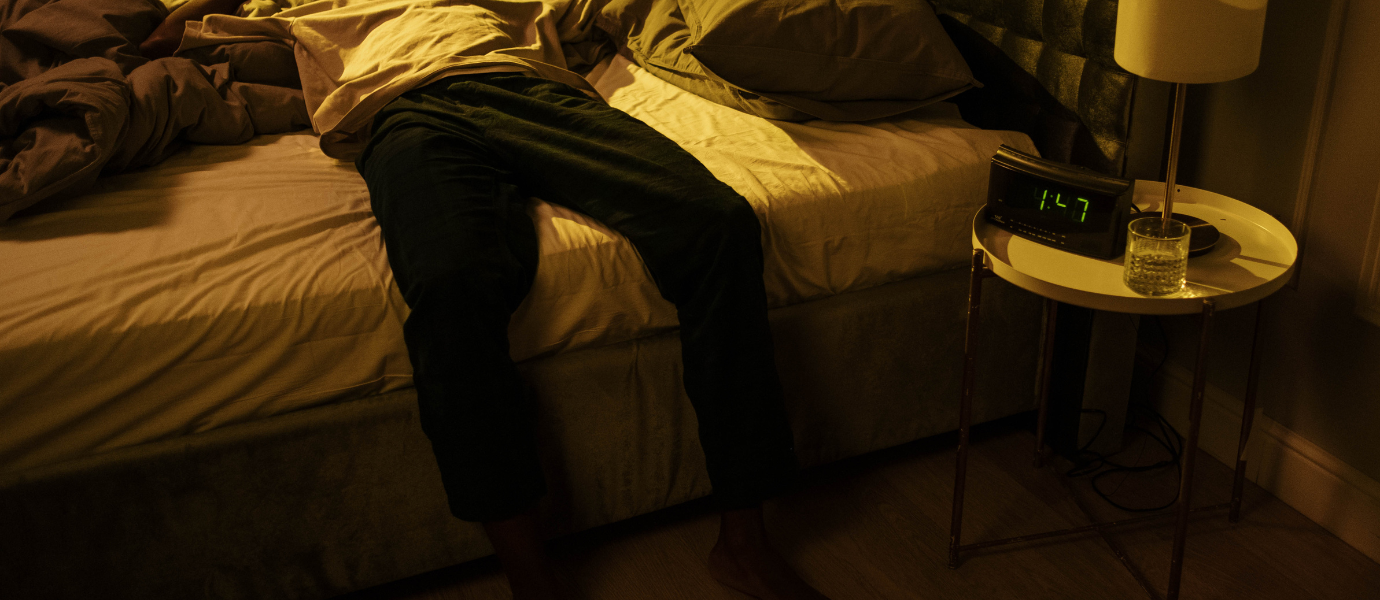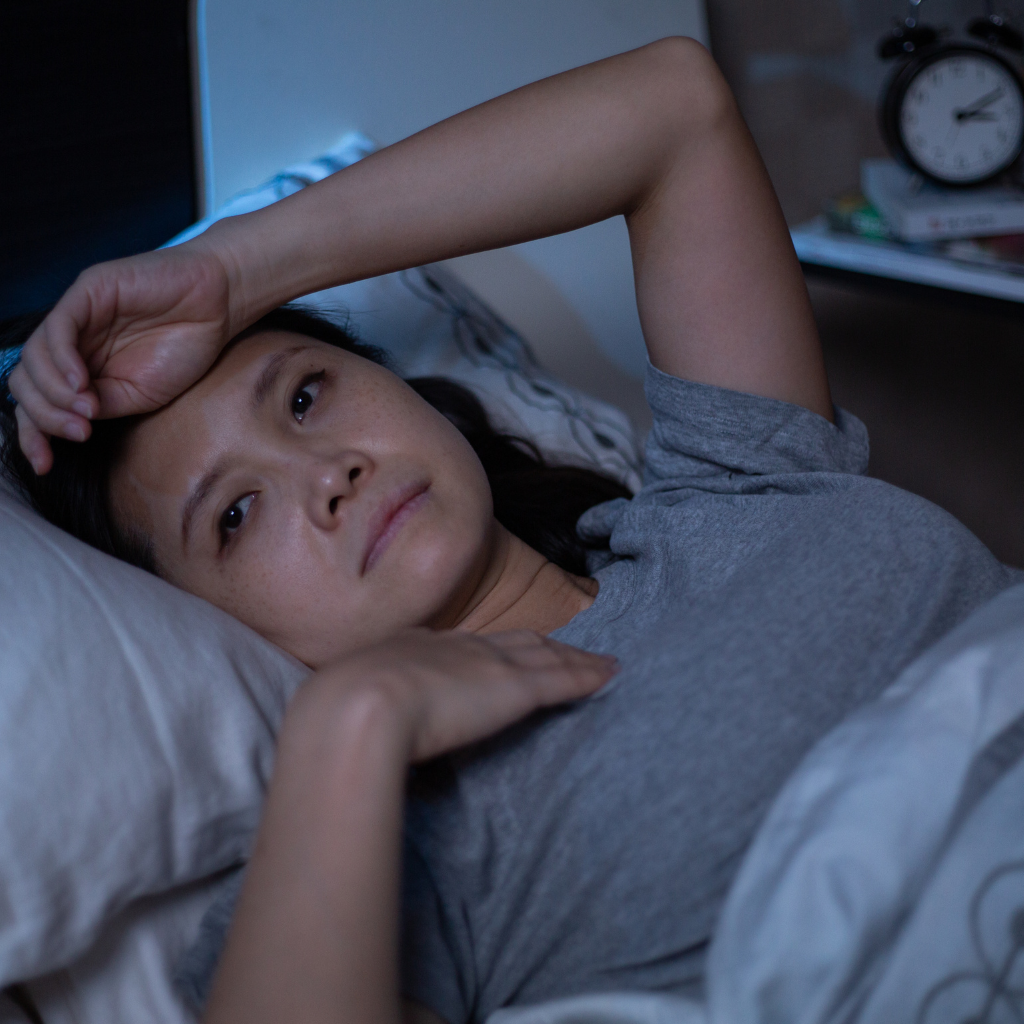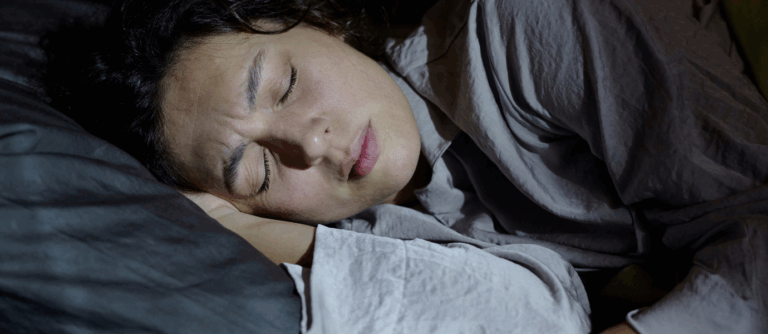
When you’re living with depression, sleep often becomes one of the first things to fall out of balance. For some, it means lying awake at night, replaying every thought, while exhaustion takes over the day. For others, it shows up as oversleeping, where even after hours of rest, you still feel heavy and unrefreshed. This tug-of-war between depression and sleep problems isn’t just frustrating—it’s a cycle that feeds itself. Poor sleep makes depression worse, and depression makes healthy sleep harder to achieve.
Depression and Sleep: Why They Feed Each Other
Depression doesn’t simply lower mood—it alters the very systems that regulate sleep. Stress hormones may rise, circadian rhythms can drift off track, and the normal balance of restorative deep sleep and dreaming sleep gets disrupted. The result is often light, fragmented rest or long stretches of sleep that still don’t feel restorative.
On the other hand, lack of rest makes the brain more reactive to stress, decreases focus, and leaves you more vulnerable to negative thinking. Together, depression and sleep disturbance reinforce each other, creating a cycle that can feel nearly impossible to break without intervention.
People with depression are much more likely to experience insomnia or hypersomnia, and those who struggle with sleep issues are at a higher risk of developing depression in the future.

What Sleep Problems Do We See Most in Depression?
While sleep disturbances in depression don’t look the same for everyone, there are a few common patterns:
- Insomnia – Many people find themselves lying awake at night, either struggling to fall asleep or waking up repeatedly. Early-morning awakenings are also common, leaving you awake hours before you need to be, often with heavy feelings of dread.
- Hypersomnia – Some people experience sleeping far more than usual. Even with extended hours of rest, energy remains low and it’s hard to get going. This pattern is especially seen in younger adults and those with atypical depression.
- Circadian rhythm disruptions – Depression can shift the body’s internal clock, making it harder to fall asleep until late at night and equally hard to wake up in the morning. Over time, this misalignment deepens fatigue and throws daily functioning off balance.
- Obstructive Sleep Apnea (OSA) – Sometimes overlooked, sleep apnea can overlap with depression. Symptoms like loud snoring, pauses in breathing, or waking up unrefreshed despite a full night’s sleep are red flags. Treating apnea often leads to improvements in mood and overall functioning.
Managing Depression and Sleep: Medications and Treatment Strategies
When it comes to managing depression, medication often plays an important role—but its relationship with sleep is complex. Some antidepressants ease anxiety and help with rest, while others may lead to lighter sleep, vivid dreams, or middle-of-the-night awakenings.
- SSRIs and SNRIs are commonly prescribed, but they can sometimes fragment sleep.
- Sedating options may help with sleep maintenance when used carefully, though side effects like morning grogginess need to be considered.
- Melatonin and supplements, while often seen as natural aids, are not considered effective for chronic insomnia. They may help shift the body clock in certain cases but are not a first-line solution for depression-related sleep issues
This is why medication should always be tailored—not just to improve mood, but to support sleep as well.
However, medication alone is rarely enough. To truly break the cycle between depression and poor sleep, treatments need to address both together.

- Cognitive Behavioral Therapy for Insomnia (CBT-I)
Cognitive Behavioral Therapy for Insomnia (CBT-I) has become the gold standard for chronic insomnia. By retraining the mind and body to follow healthy sleep patterns, CBT-I helps calm racing thoughts at night, resets circadian rhythms, and restores the natural connection between bed and rest. Research has shown that CBT-I not only improves sleep but also reduces depressive symptoms, even in people with major depression.
- Treating Depression and Sleep Together
At the same time, combining depression treatments (whether therapy or medication) with targeted sleep interventions leads to stronger, more lasting improvements. Patients often notice better rest, fewer relapses, and a greater lift in mood when both are treated together. - Screening for Sleep Apnea
Finally, it’s essential to not overlook sleep apnea. If you snore loudly, wake up gasping, or feel unrefreshed despite a full night of sleep, obstructive sleep apnea may be playing a role. Treating apnea has been shown to not only improve energy levels but also significantly ease depression symptoms.
In short, the most effective path is rarely a single treatment. It’s the combination—medication chosen with sleep in mind, evidence-based therapy like CBT-I, and attention to underlying sleep disorders—that offers the best chance at breaking the cycle and reclaiming both mood and rest.
Final Thoughts
Living with depression is already a heavy burden, and when sleep falls apart, that weight doubles. With the right treatment strategies, including evidence-based approaches, personalized medication plans, and careful evaluation of sleep disorders, it is possible to reclaim both rest and emotional well-being.
Responsibly edited by AI
Other Blog Posts in
Animo Sano Psychiatry is open for patients in North Carolina, Georgia and Tennessee. If you’d like to schedule an appointment, please contact us.
Get Access to Behavioral Health Care
Let’s take your first step towards. Press the button to get started. We’ll be back to you as soon as possible.ecovery, together.





